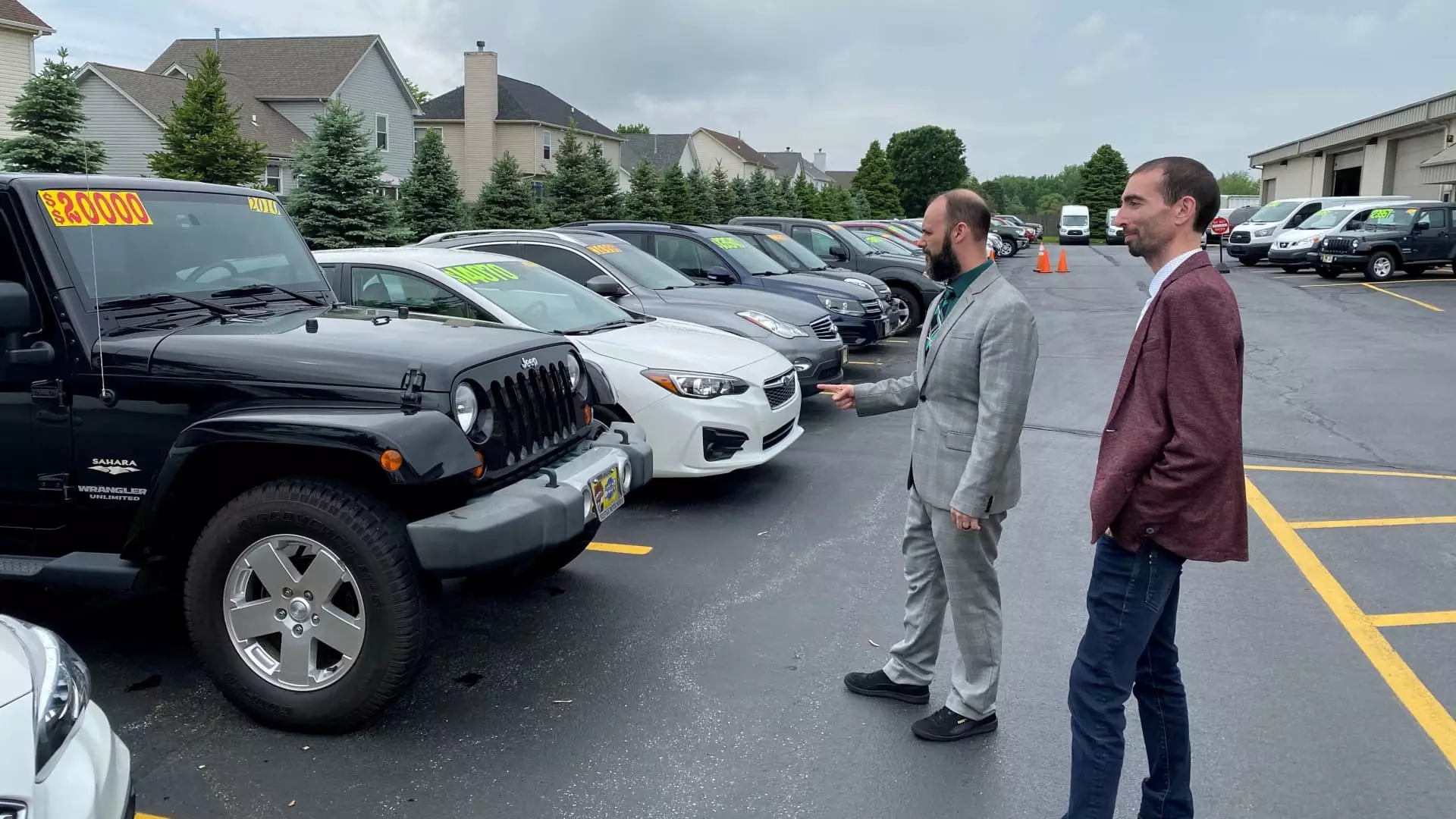The automotive retail landscape in the United States is poised for transformation as we approach 2025. Recent reports reveal a prevailing sense of optimism among car dealers, largely attributed to political shifts and favorable economic indicators. However, lurking beneath this wave of positivity is a significant concern regarding the future of electric vehicle (EV) sales, which appear troubled despite the encouraging climate in other areas of the industry.
The recent presidential election has ushered in a change in leadership that some dealers believe may bolster their business prospects. With President-elect Donald Trump back in the White House, dealers reportedly anticipate favorable shifts in economic policy. Cox Automotive’s “Q4 2024 Dealer Sentiment Index” highlights this change, showing an increase in dealers’ confidence scores from the previous quarter. The optimism reflects hopes of reduced federal regulations, better incentives for traditional vehicle sales, and the potential for lower interest rates, all of which are critical to dealer profitability.
The index saw a substantial rise to 54, indicating that most dealers are viewing market conditions as stable or positive—a stark improvement from a year ago, when the score was languishing at 41. This trajectory seems to point toward a more robust market ahead, fueled not only by political factors but also by intuitive trends in consumer financing and purchasing behavior.
Despite the surge in confidence about traditional vehicle sales, the sentiment regarding electric vehicle sales is strikingly contrary. The same index reveals that many dealers anticipate a contraction in EV sales in the coming months. A majority express concerns that evolving policies under the new administration may not favor the growth of EV adoption and may even hinder the fragile infrastructure that currently supports it.
The Cox report notes that anticipated changes may include a reduction or even elimination of the federal tax credit for EV purchases, which has been pivotal in incentivizing consumer purchases in both the new and used markets. Chief Economist Jonathan Smoke emphasized that the continuation of such tax credits is vital for maintaining consumer interest, and the lack of a concrete strategy to support EVs under the new administration is alarming to many in the industry.
Although the overall sentiment about market conditions has improved, dealers remain cautious. With a current market index score of 42, it’s clear that a significant portion of dealers still consider the retail auto market as weak. This is slightly better than previous year measurements but remains below pre-pandemic averages. Indeed, the optimistic projections for the coming months are complicated by the reality of an unpredictable market that still bears scars from recent volatility.
The mending of political uncertainty has particularly contributed to a sense of relief among dealers, who previously reported feeling adversely impacted by a climate of chaos and indecision. This newfound stability is crucial as it may help set the stage for a more predictable business environment—a key factor for any dealer looking to survive in such a competitive landscape.
Significantly, as the outlook improves, the stock market has responded favorably. Publicly traded auto dealers are witnessing substantial gains in their shares, with companies such as AutoNation and Lithia Motors seeing increases of 15% to 22% this year alone. Group 1 Automotive stands out even more, showing an impressive 40% rise in stock value. This investor confidence mirrors the growing optimism among dealers and indicates a broader acceptance of the potential for growth in the auto retail market.
As 2025 approaches, the U.S. auto dealers are finding themselves at a critical juncture. With a clear divide in sentiment between traditional and electric vehicle sales, the prospect of a recovering market offers both optimism and caution. While the political atmosphere and economic indicators provide a backdrop for potential growth, the fate of EV sales hangs in the balance. The need for supportive policies focused on electrification cannot be overlooked, lest the industry misses a pivotal opportunity in the automotive revolution.
As U.S. car dealers prepare for the coming year, they face a balancing act between renewed hope in market conditions and looming challenges in the electric vehicle sector. The road ahead remains uncertain, but with proactive strategies and adaptive measures, dealers can position themselves to navigate these complex dynamics and thrive in the years to come.

